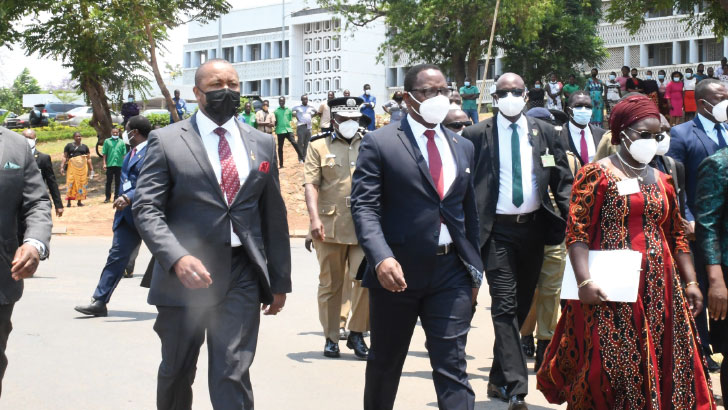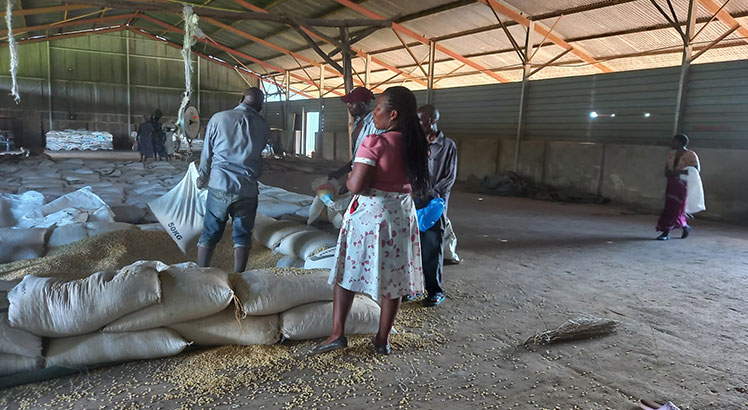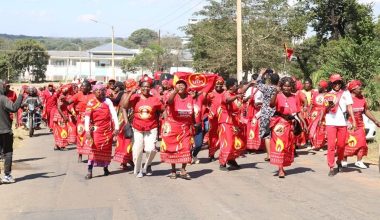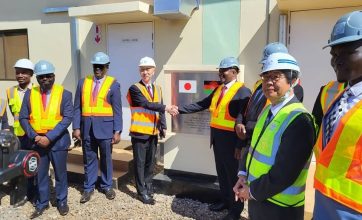Chakwera launches unit amid skepticism
President Lazarus Chakwera yesterday launched the Presidential Delivery Unit (PDU) in a move analysts said is a manifestation of the broken public sector in need of effective reform.
In his speech during the launch of the unit tasked with tracking progress in the implementation of the presidential campaign promises, the President said the new unit in the Office of the President and Cabinet (OPC) will complement the ongoing public sector reforms programme championed by Vice-President Saulos Chilima.
The President said: “The PDU and the Public Sector Reforms being led by the Vice-President are two different sides of the same coin. To be precise, the Public Sector Reforms focus on ensuring that all MDAs are functioning efficiently without the needless bureaucracy and red tape that often hinder progress.

“The Presidential Delivery Unit, on the other hand, identifies those MDAs which are responsible for implementing the key priorities of this administration and ensures that those priorities are being delivered on time.”
He said having completed the work of setting up the PDU in his office, its first assignment will be to conduct a four-week delivery lab that he concurrently launched yesterday.
Chakwera said: “The people of Malawi are the ones who are waiting for us in the home village to deliver the three goods we promised, the three goods being wealth, jobs, and food security.
“The vehicle we must use to deliver these three things is the Malawi Government, which is made up of various ministries, departments, and agencies.
“I, as President, am the driver of this vehicle, and the PDU is the pedal I will use to give direction and acceleration to the car so that the goods are delivered on time.”
Speaking earlier, Chilima expressed concern that the country’s project implementation and completion rates have historically been below the public expectations and fall behind the targets set out in the country’s well-intentioned policies, plans and strategies.
He said: “We can do better. We must do better. We surely will do better. For the Tonse Alliance administration to attain its vision of jobs, wealth creation and food security, the government machinery should move rapidly, and move with purpose.
“They say success is a choice and that is our choice today.”
United Nations Development Programme (UNDP) deputy country representative Challa Getachew said the PDU can spur the country’s economic growth and wean the country out of aid dependency as Africa, as a continent, aims to achieve development beyond aid agenda.
In an interview after the launch in Lilongwe, newly appointed PDU head Colleen Zamba said the presidential agenda is being driven by the agro-industry transformation as Malawi is an agricultural economy which forms the foundation of development.
She said PDU enablers and agenda accelerators include infrastructure where there is energy and transport, human capital where there is health and education as well as digitisation and governance.
On the composition of the unit, Zamba, who is also the President’s chief adviser on Sustainable Development Goals and international affairs, said the unit is just like any other government’s development implementation unit and currently comprises 12 people, a majority of whom are tapped from the civil service at various positions of expertise. She said few, including herself, were appointed from outside the civil service.
But in an interview yesterday, University of Malawi political science and public administration lecturer Joseph Chunga faulted the creation of the unit.
He said by establishment the OPC was supposed to follow through implementation of campaign promises and aspirations of the leadership.
Chunga said the launch of the PDU primarily to track down implementation of presidential campaign promises on job creation, wealth creation and food security reflected a broken system.
He said: “Having a ministry responsible for public sector reforms, for me, if I may be blunt, looks really absurd. These are issues to do with coordination of the whole government sectors.
“Instead of having a ministry to be running through all the Ministries, Departments and Agencies [MDAs], government would have a unit coordinated at OPC and have the president in charge, other than housed in any other ministry.”
Chunga said public sector reforms should be an ongoing exercise, explaining that the reforms do not start and end, but always innovate, analyse, organise and brainstorm to achieve results.
Weighing in, one recently retired principal secretary described the launch of the PDU as a duplication of efforts of the public sector reforms being implemented.
The former controlling officer feared the President is amassing too much power on top of the powers he already has, saying that the arrangement means the President directly calling the shots by taking to task controlling officers who will be reporting to him through the PDU on projects contained in the campaign promises.
In an earlier interview, political and governance commentator Humphrey Mvula wondered what purpose the unit would be serving when OPC and the office of the Secretary to the President and Cabinet (SPC) were purposively designed for the same purpose.
He said the PDU was designed to cover up the incompetence of some individuals who are failing to do their job to the frustration.
Mvula said the unit will not make any difference, especially where it reports to the SPC.
But in a written response, economist Milward Tobias—who is also executive director of Centre for Research and Consultancy—said he hopes there was objective and thorough analysis of the mandate of the Performance Enforcement Department which is also in the OPC.





